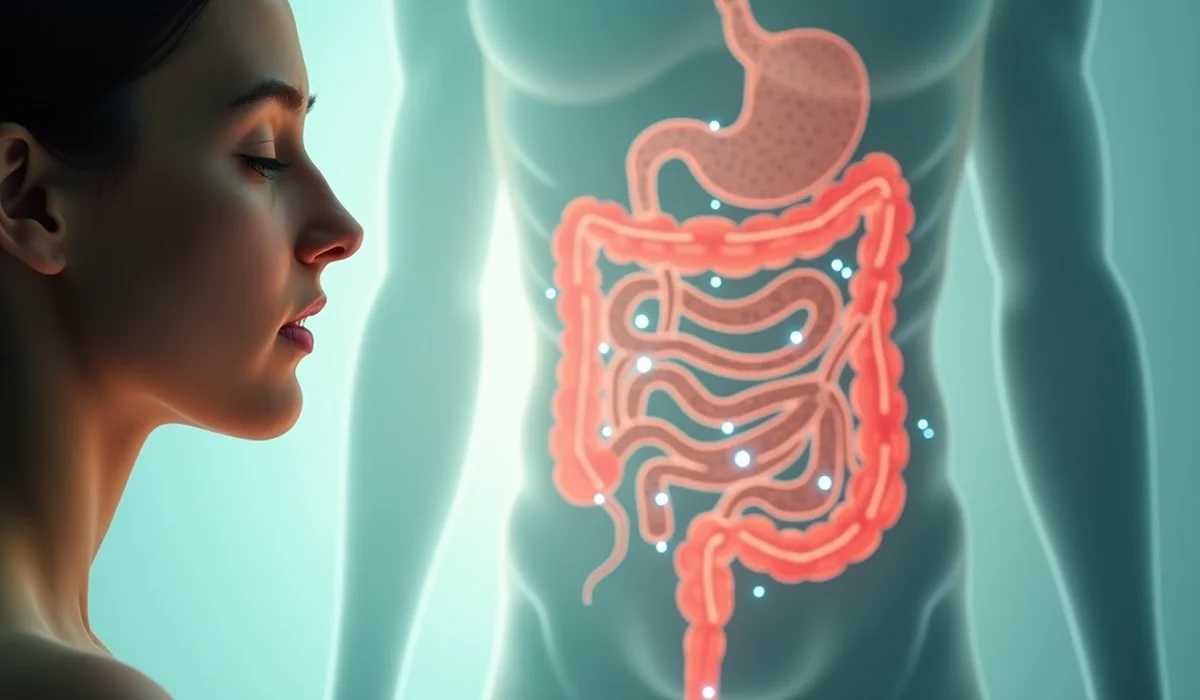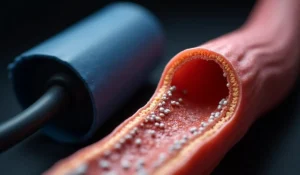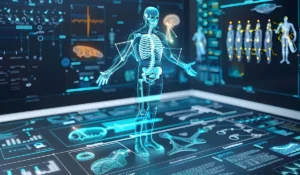The connection between gut microbiome and mental health might be more important than you think. Mental disorders affected nearly 970 million people worldwide in 2019. These numbers saw a sharp rise during the COVID-19 pandemic, particularly in cases of anxiety, depression, and PTSD. Your digestive system plays a significant role in this relationship.
Most people don’t realize that their gut produces about 90% of serotonin—a key mood-regulating neurotransmitter—not their brain. Scientists have found that there was a complex link between gut bacteria and mental health. Specific bacteria like Bacteroides uniformis and Faecalibacterium prausnitzii help our mental wellbeing by producing short-chain fatty acids. Research has identified unique biological patterns in mentally resilient people’s microbiomes. These patterns show reduced inflammation and better gut barrier integrity. The evidence supports a strong connection between gut health and mood, showing that people with diverse microbiomes tend to experience less anxiety and depression.
Let’s take a closer look at the fascinating science behind the gut-brain axis in this piece. We’ll get into how microbiome and mental health interact and break down ways to improve psychological wellbeing through targeted gut health strategies.
The Gut-Brain Axis: How Your Microbiome Talks to Your Mind
Your digestive system maintains a sophisticated communication network with your brain. It works like a biological internet with multiple pathways that shape your mood, cognition, and mental health. The microbiota-gut-brain axis creates this complex communication system that operates in both directions through neural, endocrine, immune, and metabolic routes.
The role of the vagus nerve in gut-brain communication
The vagus nerve acts as the superhighway of the gut-brain axis and transmits vital information between your digestive system and brain. This longest cranial nerve extends from the brainstem through the neck into your abdomen. About 80% of its fibers send sensory information from your organs to your brain [1].
The vagal afferents can’t directly contact gut bacteria since they don’t cross the epithelial layer. They detect bacterial signals indirectly. Your gut lining’s enteroendocrine cells release signaling molecules that activate vagal receptors at the time microbes produce metabolites or stimulate them [2].
Research highlights this pathway’s importance. Scientists gave mice the probiotic Lactobacillus rhamnosus and saw reduced anxiety and depression-like behaviors. The benefits vanished in mice that had their vagus nerves cut [2]. This proves the vagus nerve’s role as the main communication channel between certain gut bacteria and the brain.
The vagus nerve also triggers a cholinergic anti-inflammatory pathway that reduces inflammation and improves intestinal barrier strength [3]. This pathway matters especially when you have the inflammatory subtype of depression. It helps maintain gut wall integrity and might change microbiome composition [2].
Neurotransmitters produced in the gut
The sort of thing i love about gut-brain research is that gut bacteria can blend the same neurotransmitters that control our mood and cognition. Different bacterial species create specific neurotransmitters:
- Lactobacillus species produce acetylcholine and GABA
- Bifidobacterium species produce GABA
- Escherichia produce norepinephrine, serotonin, and dopamine
- Streptococcus and Enterococcus produce serotonin
- Bacillus species produce norepinephrine and dopamine [4]
Neurotransmitters like GABA and serotonin can’t cross the blood-brain barrier directly. They influence brain function through indirect pathways [5]. Gut bacteria also modify neurotransmitter precursors’ availability. Tryptophan, serotonin’s precursor, crosses the blood-brain barrier and helps in brain serotonin production [5].
Enteroendocrine cells are vital to this system and produce about 90% of the body’s total serotonin [6]. These specialized cells detect bacterial signals through toll-like receptors and release neurotransmitters [2]. This creates another way for gut microbes to influence brain function.
Short-chain fatty acids and their mental effects
Gut bacteria create short-chain fatty acids (SCFAs) when they ferment dietary fiber. These compounds, mainly acetate, propionate, and butyrate, represent one of the most important ways your microbiome affects mental health [7].
SCFAs can cross the blood-brain barrier, unlike most neurotransmitters. Scientists have found significant amounts in cerebrospinal fluid [8]. These compounds have wide-ranging mental effects:
Butyrate shows antidepressant properties and influences social behavior. Studies link butyrate-producing bacteria like Faecalibacterium and Coprococcus to better quality of life indicators [9]. People with depression often lack these bacteria [9].
Propionate protects neurons and can affect appetite regulation by activating the vagus nerve [8]. Acetate changes brain levels of glutamine, glutamate, and GABA. It also stimulates the hypothalamus to produce appetite-regulating neuropeptides [10].
SCFAs do more than just direct effects. They regulate microglial maturation and function, stop neuroinflammation by blocking the NF-κB pathway, and influence epigenetic changes through DNA methylation and histone acetylation [7].
Gut Microbiota and Mental Health Disorders
Scientists have found mounting evidence that links changes in gut microbes to various psychiatric conditions. Their research consistently shows how the microbiota-gut-brain axis connects alterations in gut microbiome to mental health disorders. The trillions of microorganisms living in our digestive system can substantially influence our mental health [11].
Anxiety and depression linked to microbial imbalance
The disruption of gut ecosystem balance, known as microbial dysbiosis, has clear connections to anxiety and depression. Recent systematic reviews show mixed results about overall microbial diversity. However, people with mood disorders tend to have more pro-inflammatory bacterial taxa (such as Enterobacteriaceae and Desulfovibrio) and fewer beneficial short-chain fatty acid-producing bacteria (like Faecalibacterium) [11].
Research on depression’s microbiome reveals consistent patterns. The Bacteroidetes/Firmicutes ratio typically increases, with more Bacteroides and fewer beneficial bacteria like Blautia, Faecalibacterium, and Coprococcus [12]. People with depression and anxiety often show higher levels of Eggerthella [13].
Microbiome disturbances can disrupt the gut-brain axis. This disruption leads to neuroinflammation and changes in blood-brain barrier permeability [13]. Scientists showed this connection through remarkable experiments. When they transferred fecal matter from depressed humans to germ-free mice, the animals developed depressive-like behaviors [8].
Bipolar disorder and schizophrenia connections
Bipolar disorder has unique microbial patterns that set it apart from healthy individuals. Research reveals changes in bacteria with anti-inflammatory properties. Patients show more Flavonifractor and less Faecalibacterium [11]. These findings suggest microbiome involvement in the disorder’s underlying mechanisms, particularly given inflammation’s role in bipolar illness.
Newer research shows that bipolar patients typically have less diverse gut microbiota. They show increased levels of Clostridiaceae, Collinsella, and the phyla Actinobacteria and Coriobacteria. They also have decreased Ruminococcaceae and Faecalibacterium [8]. A shotgun metagenomics study revealed that schizophrenia patients have nowhere near the microbial richness of control groups [14].
Bacterial patterns relate to treatment response in schizophrenia. Treatment-resistant patients have distinct microbial signatures, including more pro-inflammatory bacteria like Porphyromonas. Treatment-responsive patients have more butyrate-producing bacteria such as Flintibacter butyricus [14]. Both bipolar and schizophrenia spectrum disorders show more Lachnoclostridium and Eggerthella [15].
Autism spectrum and ADHD correlations
Up to 70% of ASD patients experience gastrointestinal symptoms. These symptoms become more intense as autism severity increases [16]. Research shows consistent differences in β-diversity of gut microbiota between ASD patients and control groups, though specific bacterial variations differ among studies.
Several patterns emerge in autism microbiome research:
- ASD children show more Clostridium species, including C. bolteae, C. paraputri, and C. perfringens [8]
- Autistic children have increased levels of Actinobacteria, Proteobacteria, and Bacilli [8]
- Infants who later develop neurodevelopmental disorders show reduced populations of beneficial bacteria like Akkermansia, Bifidobacterium, Ruminococcus, and Faecalibacterium [17]
ADHD findings remain varied with no clear consensus on specific microbiome differences [16]. Environmental factors substantially affect gut microbiome development and subsequent ADHD risk. Children who had three or more antibiotic-treated ear infections before age 5 were 3.27 times more likely to develop ADHD [17].
The connection between gut microbiota and mental health disorders opens up exciting possibilities for diagnostic markers and novel treatments. Scientists continue to explore the gut-brain axis as a fascinating frontier to understand and address these complex conditions.
What Shapes Your Gut Biome?
The gut microbiome is a living ecosystem of trillions of microorganisms that changes throughout your lifetime. This internal microbial world evolves from early development to adulthood. The gut-brain axis connects it to both physical and mental wellbeing.
Diet and nutrition patterns
Food choices powerfully shape your gut microbial composition. Studies show that dietary fiber helps beneficial bacteria grow and produce short-chain fatty acids (SCFAs). These SCFAs lower colon pH and restrict harmful bacteria [6]. These compounds provide over 70% of colonocytes’ energy, and butyrate plays a vital role in intestinal health [18].
Scientists have found that gut bacterial composition can change within 24 hours of dietary adjustments [18]. People who eat plant-based, fiber-rich diets develop Prevotella-abundant microbiome profiles. Those who consume more animal protein and fat show Bacteroides-driven profiles [18]. African children who eat fiber-rich foods have higher levels of Bacteroidetes genera Prevotella and Xylanibacter. They also produce more SCFAs than European children who eat more animal-based, sugary foods [18].
Antibiotics and medications
Antibiotics create the most disruption to gut microbiome composition. These medications save lives but destroy good microbes along with harmful ones [19]. Research shows that even small doses or brief antibiotic treatments can leave lasting effects on the microbiome [20].
Many everyday medications alter gut bacteria substantially. A meta-analysis of drug-microbiome interactions revealed that proton pump inhibitors (PPIs) had the strongest microbial associations [21]. Metformin, vitamin D supplements, and laxatives also create notable changes [3]. Recent studies found that various prescription drugs can build up inside gut bacteria. This accumulation might change bacterial function and make drugs less effective [2].
Stress and sleep quality
Sleep, stress, and gut microbiome share a fascinating two-way relationship that offers insights into mental health. Research links higher microbiome diversity to better sleep efficiency and longer sleep duration [1]. Poor sleep can alter gut microbiome composition [1].
Mental stress creates physical changes in the gastrointestinal tract. These changes affect gut motility, visceral perception, and intestinal permeability [22]. The gut-brain axis allows these alterations to influence gut microbial composition. Stress hormones like cortisol can damage intestinal barrier integrity and immune signaling [23]. This damage might create unbalanced conditions that loop back to affect mental health through this two-way communication channel.
Scientific Evidence: What the Research Shows
Scientists are learning faster about how our gut bacteria connect to brain function. Their research combines population studies with complex animal experiments. This work provides stronger evidence that links our microbiome to mental health.
Key findings from human studies
Research shows consistent patterns in gut bacteria across different psychiatric conditions. A complete review of 34 studies found similar bacterial compositions in people with depression, bipolar disorder, and schizophrenia [5]. A newer study, published in Nature Mental Health, discovered unique biological signatures in people’s microbiomes who showed high psychological resilience. These people had less inflammation and better gut barrier strength [10]. This matches research on 5xFAD mice (which develop Alzheimer’s pathology) that showed reduced microglial activation after their gut microbiota was removed [24].
The most exciting discovery came from a groundbreaking case report. Scientists used fecal microbiota transplants to ease depression symptoms in two patients [5]. This could be the first direct evidence of such treatment working in humans.
Animal models and microbiome manipulation
Animal studies give us the strongest proof of cause and effect. Scientists took gut bacteria from depressed patients and transplanted them into germ-free mice. These mice then developed depression-like behaviors [25]. The same thing happened when they moved bacteria from stressed mice to germ-free ones. These recipient mice showed similar behavioral symptoms and had reduced hippocampal neurogenesis [25].
Germ-free models help us learn about these connections but have important limitations. Animals that grow up without gut bacteria develop different brain functions and behaviors [26]. This makes it harder to interpret the results.
Scientists found specific mechanisms through metabolomic analysis that show how gut bacteria affect fatty acid metabolism, especially endocannabinoid system precursors. One study showed that increasing endocannabinoid levels through medication reversed depression behaviors caused by gut bacteria [25].
Limitations and future directions
Big research gaps still exist. Many findings show connections but not causation [7]. Studies often lack proper controls or need more participants [5]. Scientists struggle to determine if diseases cause microbiome changes or if it happens the other way around [5].
The path forward needs long-term studies that track people without intervention to understand cause and effect [5]. The microbiome’s complexity requires new approaches beyond traditional drug development that focuses on single molecules [10].
Mental health treatment could change in the next decade. Scientists believe microbiome markers might help doctors make better treatment decisions [10]. This could help them choose the best options from medication to diet to exercise.
Can We Treat Mental Health Through the Gut?
Psychobiotics show promise as new approaches to mental health treatment. Research shows that targeting gut microbiota could improve symptoms of depression, anxiety, and other mental disorders. This happens by improving beneficial bacteria and suppressing harmful ones [8].
Probiotics and prebiotics in therapy
Probiotics, which are living microorganisms that benefit health, show great potential in addressing mental health concerns. Lactobacillus and Bifidobacterium species provide the most consistent benefits for psychological wellbeing [27]. Clinical studies reveal:
- Lactobacillus rhamnosus HN001 substantially decreased depression and anxiety scores in postpartum women [8]
- A combination of Lactobacillus reuteri NK33 and Bifidobacterium adolescentis NK98 improved mental health and sleep in 156 adults with subclinical symptoms [8]
- Lactobacillus rhamnosus Probio-M9 improved psychological quality of life in stressed adults [8]
Prebiotics are non-digestible food components that stimulate beneficial bacteria and show promising results. Galacto-oligosaccharides (GOS) reduced anxiety and increased Bifidobacterium abundance in adolescent females during a 4-week intervention [8]. A newer study, published by researchers showed that Bimuno® galactooligosaccharide improved anti-social behavior in autistic children by increasing Lachnospiraceae [8].
Synbiotics and postbiotics explained
Synbiotics combine probiotics and prebiotics to work better [4]. Yes, it is this combination that creates cooperative effects by providing beneficial microorganisms and their preferred food source [9]. Research shows synbiotic supplementation reduces depression, stress, and anxiety levels in specific populations, including hemodialysis patients and those with coronary artery disease [27].
Postbiotics are metabolic by-products or inactivated microbial cells that benefit health and represent another promising direction [4]. These preparations include short-chain fatty acids (SCFAs), peptides, and bacterial cell components that improve intestinal barrier function and modulate immune responses [27].
Personalized microbiome interventions
We studied the individualized nature of gut microbiomes and found that responses to interventions vary substantially between people [28]. Several factors determine how well treatments work:
- Baseline microbiota composition
- Presence of specific microbial enzymes
- Habitual diet
- Why mental health conditions happen
Among other conventional treatments, psychobiotics provide complementary benefits. Multiple studies suggest probiotics could work cooperatively with medications like selective serotonin reuptake inhibitors (SSRIs) [29]. To cite an instance, see how researchers observed improved treatment responses when combining gut-targeted interventions with standard depression therapies [30].
This field’s advancement could lead to customized microbiome analysis that guides tailored intervention strategies for individual mental health needs [31].
Conclusion
The link between our gut microbiome and mental health is one of the most exciting areas in modern neuroscience. Scientists have found that there was a complex biological network called the gut-brain axis that shapes our psychological wellbeing. The evidence behind this connection keeps getting stronger. Studies show how gut bacteria make vital neurotransmitters, while research has found that microbial imbalances relate to mental health disorders of all types.
We now know much more about what affects our gut microbiome. Diet is the biggest factor that can change microbial communities in just 24 hours. Medications (especially antibiotics), stress levels, and sleep quality also substantially affect our internal microbial world, which then affects our mental health in many ways.
The science, though still developing, shows the potential benefits of improving gut health for mental wellbeing. Clinical studies show that specific probiotic strains, particularly certain Lactobacillus and Bifidobacterium species, can help reduce anxiety and depression symptoms. Prebiotics, synbiotics, and individual-specific microbiome treatments are a great way to get additional support alongside conventional mental health treatments.
While we still need to establish clear cause-and-effect relationships, the two-way nature of gut-brain connection suggests that our digestive health plays a vital role in mental wellbeing. The trillions of microorganisms in our gut do more than help with digestion – they help shape our mood, cognition, and overall psychological health.
Those “gut feelings” you experience might be more than just expressions – they could be actual conversations between your microbiome and mind. A healthy gut microbiome through good food choices, stress management, and careful probiotic use might become key parts of detailed mental health care soon.
References
[1] – https://pmc.ncbi.nlm.nih.gov/articles/PMC6779243/
[2] – https://www.embl.org/news/science/medications-gut-bacteria/
[3] – https://www.nature.com/articles/s41467-019-14177-z
[4] – https://www.jocmr.org/index.php/JOCMR/article/view/4575/25893467
[5] – https://www.npr.org/sections/health-shots/2023/07/08/1186092825/studying-the-link-between-the-gut-and-mental-health-is-personal-for-this-scienti
[6] – https://nutritionsource.hsph.harvard.edu/microbiome/
[7] – https://www.sciencedirect.com/science/article/abs/pii/S0149291820300771
[8] – https://pmc.ncbi.nlm.nih.gov/articles/PMC10384867/
[9] – https://pmc.ncbi.nlm.nih.gov/articles/PMC11485767/
[10] – https://www.npr.org/sections/shots-health-news/2024/06/24/nx-s1-5018044/gut-microbiome-microbes-mental-health-stress
[11] – https://pmc.ncbi.nlm.nih.gov/articles/PMC9227193/
[12] – https://www.thelancet.com/journals/ebiom/article/PIIS2352-3964(23)00092-0/fulltext
[13] – https://pmc.ncbi.nlm.nih.gov/articles/PMC10146621/
[14] – https://www.psychiatrist.com/news/gut-microbiome-breakthroughs-revolutionize-schizophrenia-treatment/
[15] – https://www.sciencedirect.com/science/article/pii/S0889159124004781
[16] – https://pmc.ncbi.nlm.nih.gov/articles/PMC7524304/
[17] – https://www.psychiatrist.com/news/paper-suggests-link-between-gut-biome-and-adhd-autism/
[18] – https://www.frontiersin.org/journals/nutrition/articles/10.3389/fnut.2023.1225120/full
[19] – https://pmc.ncbi.nlm.nih.gov/articles/PMC4191029/
[20] – https://pmc.ncbi.nlm.nih.gov/articles/PMC8756738/
[21] – https://gut.bmj.com/content/69/8/1510
[22] – https://academic.oup.com/femsec/article/97/4/fiab043/6168382
[23] – https://www.explorationpub.com/Journals/em/Article/100197
[24] – https://www.nature.com/articles/s41392-024-01743-1
[25] – https://www.nature.com/articles/s41467-020-19931-2
[26] – https://journals.asm.org/doi/10.1128/mbio.02075-24
[27] – https://pmc.ncbi.nlm.nih.gov/articles/PMC8654258/
[28] – https://www.frontiersin.org/journals/public-health/articles/10.3389/fpubh.2020.00144/full
[29] – https://www.frontiersin.org/journals/behavioral-neuroscience/articles/10.3389/fnbeh.2023.1185522/full
[30] – https://pmc.ncbi.nlm.nih.gov/articles/PMC10490379/
[31] – https://journals.lww.com/co-psychiatry/fulltext/2022/01000/microbiota_targeted_interventions_for_mental.3.aspx





